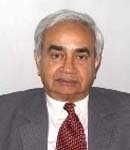The Mumbai Train Blasts: Questions and Answers
13 Jul, 2006 · 2069
PR Chari attempts to answer questions that have arisen in the wake of the Mumbai train blasts
Q. Can what happened in Mumbai this week repeat itself?
A. The short answer is "Yes, definitely." Not only in Mumbai but in other cities of India. For that matter this kind of attack on mass transit systems could be mounted in any city of the world, as recent events in London and Madrid should warn us. The reason is obvious-commuter trains and buses offer attractive targets for attack by terrorist organizations to achieve their ends by creating confusion and demoralization. They are easy to attack but very difficult to defend. A terrorist can plant bombs and explosives in a commuter train or bus from any of the several stations it passes through. How can one ensure that each one of them has adequate screening and other security measures, especially during rush hours?
Q. Why was Mumbai chosen?
A. For at least two major reasons. It is the financial capital of India; hence, disruption in Mumbai is expressly designed to affect the Indian economy. Then, again, it has become communally sensitive ever since the demolition of the Babri mosque in 1992, which led to extensive communal riots in which the State administration is widely believed to have played a partisan role against the minority community. It was the forerunner, in fact, of the Gujarat riots a decade later, same cast of actors, same victims, same long-term results. Incidentally, Mumbai was similarly serially-attacked on two occasions in the recent past-in 1993 and 2004 that also caused a large number of casualties.
Q. Is there a link between the bomb blasts in Mumbai and what happened on the same day at Srinagar in Kashmir?
A. The investigations into these outrages are still in a preliminary stage; so it would be unfair to leap to conclusions. Proceeding, however, on the basis of the modus operandi in both Mumbai and Srinagar, the finger of suspicion points steadily to the Lashkar-e-Toiba (LeT), along with disaffected local persons to provide logistical support, being involved. The LeT is known to have a grand design to destabilize India by instigating communal violence through such large-scale attacks. They are also known to have established networks and sleeper cells all over India that can be activated on command. Besides, the LeT has a pan-Islamic vision that helps it to join forces with domestic Islamic fundamentalist parties and recruit disaffected persons by appealing to their religious sentiments, and desire for vengeance.
Q. What reasons are there to believe that Pakistan is involved?
A. India has raised its concerns repeatedly that Pakistan is harboring terrorist organizations on its territory. The LeT, for instance, has its headquarters in Muridke, near Lahore, which is conducting its business without any hindrance. Unless Pakistan takes firm steps to curb and eliminate its activities, the suspicion will always remain that it wishes to use the LeT as its instrument to pressurize India and secure its objectives in Kashmir. At the least, such attacks would cause massive disruption, and lower the confidence of international investors in India's economy. That this bankrupt policy has a blowback effect and also affects Pakistan's image abroad and its own economy is something which does not as yet inform its elite. Unless the international community adopts a uniform and realistic policy towards Pakistan, there is little hope that it will desist from its hostile actions vis-a-vis India.
Q. What are the lessons that India's security and intelligence agencies should learn from the Mumbai blasts?
A. The knee jerk reaction of the politicians and security agencies is to ask for strengthening the law, read, bring back POTA on the statute books. Nothing could be more pointless. The most important lesson to be learnt from the recent incidents is that terrorism and such senseless acts will continue and cannot be wished away. The need, therefore, is for the police and intelligence agencies to become much more professional. There is a great deal to be learnt from other nations that have been victims of terrorism like Israel, Germany and the United States. Secondly, the sharing of intelligence and the conduct of joint operations with friendly countries has to be given more substance, apart from making general policy statements of intent. Third, counter-terrorism and counter-intelligence operations need to be brought under some oversight mechanism. Could this be a parliamentary Committee? Or, a Secretaries' Committee? This improvement of capabilities is not merely a matter of spending more and more money on the concerned agencies, but in assessing what they are doing with it, and why they are not being effective. This is linked to securing greater professionalism down the line, which must, preferentially, include gearing up the district police-the primary source of intelligence. Lastly, the creaky judicial system is in urgent need of repair and reform. Everyone knows what needs to be done, but very little is being done. There is little point in bringing terrorists and their supporters to justice, if that justice cannot be ensured speedily. After all, justice delayed is justice denied. The battle against terrorism cannot be lost in the courts.


